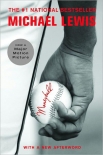Moneyball by Lewis, Michael (books to read in your 30s TXT) 📗

Book online «Moneyball by Lewis, Michael (books to read in your 30s TXT) 📗». Author Lewis, Michael
He’d made it in college, and was taken in the first round of the 1991 draft by the Red Sox. Once in the minors, crude ability got him as far as Double-A ball. There he encountered the two obstacles that routinely ended professional hitting careers: pitchers who had not only stuff but control too; and game theory. In Double-A, as in the big leagues, a hitter saw the same pitchers more than once. More to the point, the pitchers saw you more than once, and invested some energy in trying to exploit what they learned about you. He began to keep records of his at bats: what pitchers threw him, how he responded. Keeping written records, like seeing lots of pitches during each at bat, was a way to gather information. The more information he had about a pitcher, the better he hit against him. He didn’t have the luxury of coasting on raw talent; very few guys did. Sure, you might get to the big leagues and even have a sensational month or two, but if you had some fatal flaw you were found out. Kevin Maas! Maas comes up in 1990 with the Yankees and hits ten home runs in his first seventy-seven at bats. Had he kept hitting them out at that rate for a full season he’d have broken Roger Maris’s single-season home run record as a rookie. He didn’t. He stopped hitting home runs; he stopped hitting period. After a couple of frustrating seasons, Kevin Maas was out of baseball.
Why do you think that happened? Hatteberg knew, or thought he did: it happened because the big leagues was a ruthlessly efficient ecosystem. Every hitter had a weakness. Once he arrived in the big leagues, teams saw him often enough to find that weakness, and exploit it. “Once your hole has been exposed,” Hatteberg said, “you have to make an adjustment or the whole league will get you out. Any pitcher who can’t exploit that hole isn’t in the big leagues.” If you were unable to adapt, you were doomed. If you had a weakness for pitches out of the strike zone, without some extraordinary talent to compensate for it, you were doomed. Hatteberg took that logic one better: he believed that if he swung at anything he couldn’t hit hard, even if the pitch was a strike, he was doomed. “If I just went up there and hacked,” he said, “I’d have been weeded out well before the big leagues.” He forced himself to look for a certain pitch from each pitcher, and then trained himself to see that pitch. He knew not just what he could do but what he couldn’t do. He knew what pitches he couldn’t hit well.
Billy Beane thought himself out of the big leagues. Scott Hatteberg thought himself into them. He’d been called up for the first time at the tail end of the 1995 season. With the division title in the bag, the team went into Yankee Stadium for a meaningless game—if any game between the Red Sox and the Yankees can be meaningless. Hatty was assigned to catchh relievers in the bullpen, and didn’t expect to play. He went out to Yankee Stadium early anyway because he didn’t want to miss seeing the Yankees’ first baseman, Don Mattingly, take batting practice. The game itself was a mess. The Red Sox quickly fell behind. In the top of the eighth inning the Yankee pitcher, David Cone, was working on a two-hit shutout. With the Red Sox down 9-0, the manager called the bullpen and told Hatteberg to pinch-hit. Hatteberg ran down from the pen, stepped into the batter’s box, and stared down the first-base line. Don Mattingly was staring back.
Hatty took the first pitch, as he nearly always did, to get comfortable. Ball one. The second pitch was ball two. Cone had his best stuff that day. Hatteberg knew on the third pitch he’d see something in the strike zone, and he did. “I just about came out of my shoes,” he said. Foul ball. Cone just missed with the next pitch and the count went to 3-1. A hitter’s count. Hatteberg thought: If I get a hit, I get the ball. They always gave you the ball after your first big league hit. Then he had another thought: I’m one ball away from meeting Don Mattingly. It was Scott Hatteberg’s first appearance in a big league batter’s box and he was looking to draw a walk.
David Cone wasn’t going to let him have it. Cone’s next pitch was less a pitch than an invitation, an inside fastball in what Hatteberg called his “happy zone,” and he ripped it down the right field line. It banged off the right field wall a few inches below the top and bounded back crazily into the field of play.





Comments (0)